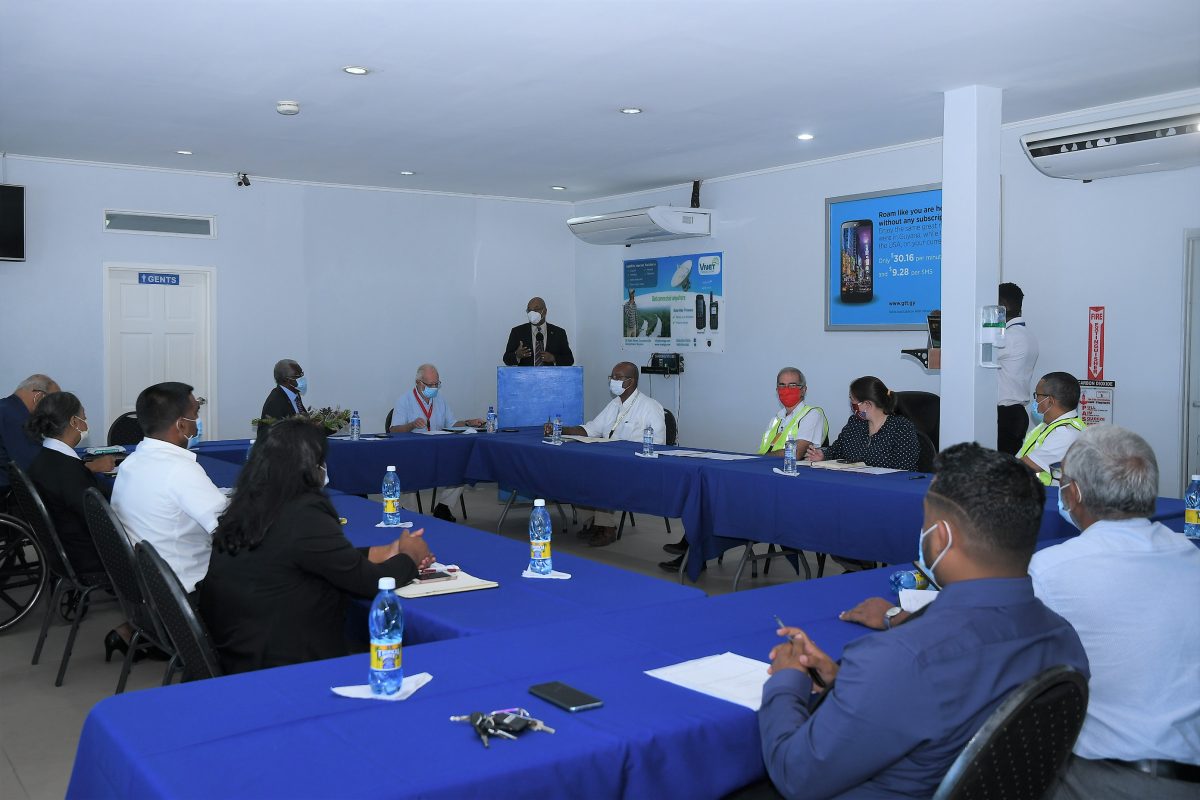To enhance the search and rescue capacity in Guyana, local aircraft owners are calling on government to make it mandatory that all aircraft be equipped with Automatic Dependent Surveillance Broadcast (ADS-B) tracking systems.
“It is a technology that is less expensive than radar, and will enhance the country’s Search & Rescue capability. We urge, therefore, that the Director General now institute a 100% compliance for all aircraft to have this equipment installed and fully operational,” Head of the Aircraft Owners Association of Guyana (AOAG), Michael Correia Jr. told the body’s Annual General Meeting on Thursday, where Minister of Public Works Juan Edghill was in attendance.
But he was quick to also point out that having aircraft owners invest in the tracking technology was only one element in having a robust search and rescue and surveillance system as backup helicopters would be needed to get to the dense areas of Guyana’s highly forested lands.
“The ADS-B System is vital for our aviation safety. If an aircraft crashes in the midst of the jungle in the interior, we need to be able to immediately find it and then rescue the survivors. The ADS-B will serve to locate the aircraft, but in order to effectively conduct the rescue, we must have readily available, at least, one large twin-engine helicopter that is equipped for extraction, whether in the jungle or over the sea, especially now with the expanding work offshore in the oil and gas industry,” he added.
Correia said that it was an issue, which could perhaps be discussed with ExxonMobil which uses these type of helicopters.
Over the years aircraft have gone missing and while some have never been found, getting to the others have posed problems and thus seen delayed rescues.
In addition to aircraft tracking, Correia pleaded with government to fix hinterland runways and through a “substantial programme”. He bemoaned that for many years the hinterland airstrips have been in an abysmal state.
“We speak of the curse of the Dutch disease but, if we are to avoid it, we must diversify. The development of our hinterland is fundamental to this objective. We must, therefore, invest in building new runways which will make travel safer and accommodate larger passenger aircraft. Mr. Minister, as it is, as we know, we are spending some US$150 million and counting on one runway, so let us spend US$50 million on 50 domestic runways. We can begin immediately to restart and complete, for instance, the Lethem runway project,” he said.
In direct response to the association, Edghill told them that their requests and recommendations have not fallen on deaf ears but that his government was already working to address some of the areas of concern. “Yes Mr. President, I heard you in your address, not only will we license and make new airstrips operational but we will but we will make the necessary investments for the maintenance and development of all of our airstrips. I have already instructed that there is a model that can be developed,” he said.
The model according to Edghill will be to utilize residents of villages near to the airstrips to maintain them. In that way, he said, it would be creating work for villagers while ensuring that there were always persons on standby should there be need for emergency landing and takeoff from those villages.
“Those near to Amerindian communities…we want to ensure we give community contracts to those villages to ensure the airstrips are cleaned and well kept…,” he said.
Standards
But government will not compromise on standards that are to be kept by aircraft operators. “There will be no compromise coming from the GCAA (Guyana Civil Aviation Authority) as the regulator where safety is concerned…safety must be high on the agenda. And when we say about safety, it is not just ensuring the planes are serviceable and well maintained but the role of the operators to ensure that while looking at the bottom line they don’t compromise standards…including the abuse of the pilots,” Edghill said.
He said that within only 40 days of the Irfaan Ali administration, he had taken to Cabinet for no-objection, the application for the importation of at least seven new aircraft for two private companies and the establishment of two new airstrips.
Edghill later told Stabroek News that five of the seven aircraft are for the Air Services Limited (ASL) group and two for the Alphonso Group. The two new private airstrips, he explained, would be ASL’s located at Mahaica while the other would be Alphonso’s and would be at Charity, Essequibo.
“So you have one at Mahaica for ASL, where it will help the farmers with the spraying of their crops and the rest of it and the other is at Charity for the Alphonso Group. So you won’t only have an airstrip at Hampton Court but now you have one at Charity as well,” he said.
This government, according to Edghill, will join with private investors, like the AOAG, to form an unbreakable partnership aimed at accelerated economic growth of the country.






